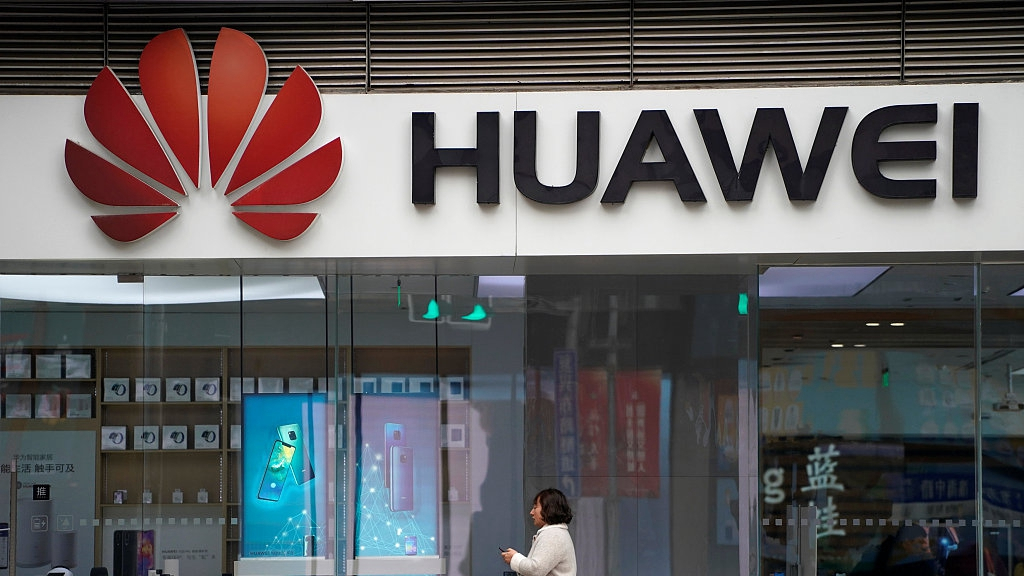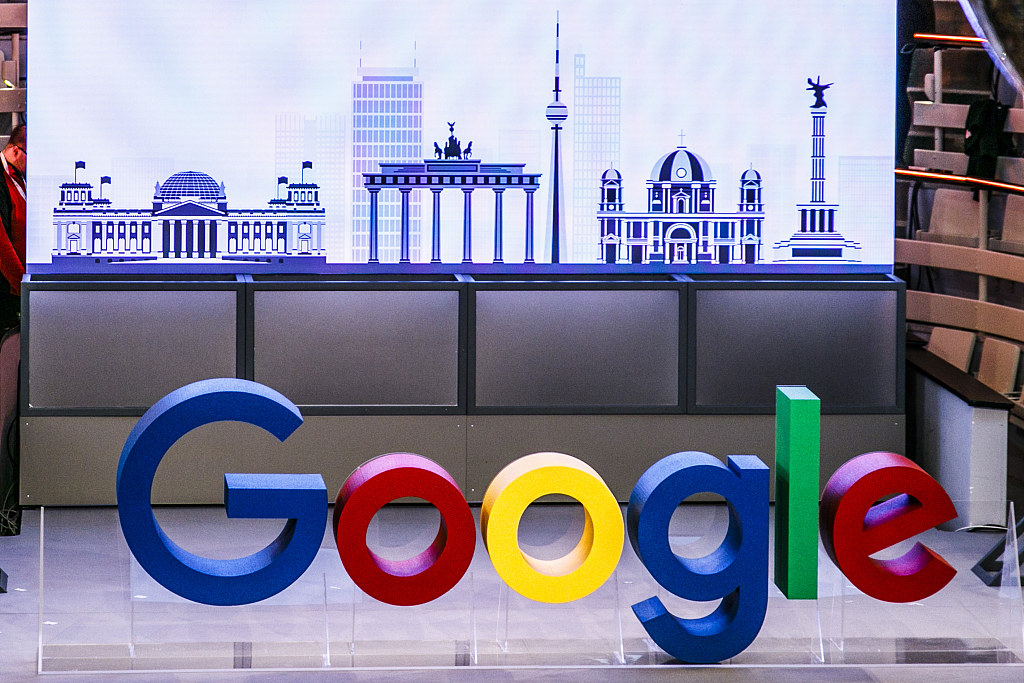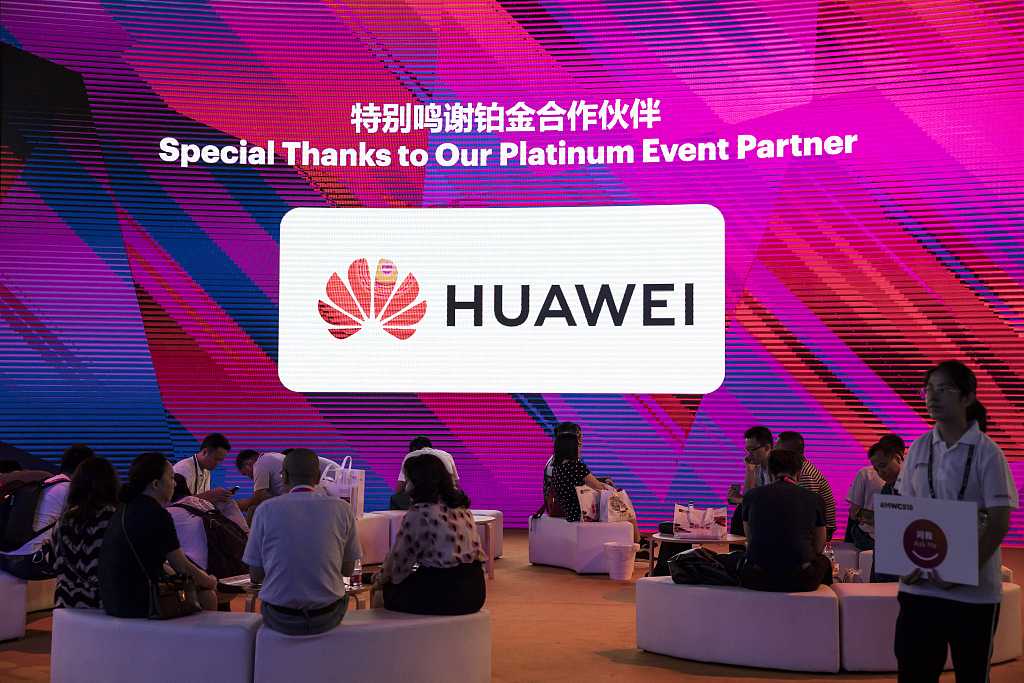
Opinion
10:31, 21-May-2019
Google's anti-Huawei move might lead to digital multipolarity
Andrew Korybko

Editor's note: Andrew Korybko is a Moscow-based American political analyst. The article reflects the author's opinion, and not necessarily the views of CGTN.
Google declared that it will comply with President Trump's anti-Huawei sanctions and ban the company's users from the app store after they rescinded its license in response to the latest executive order. International media is reporting that existing users might still be able to update their apps, but they won't be able to download the forthcoming Android operating system update later this year.
New phones might also be unable to use Google's trademarked features, including its popular mail, maps, and video apps, which will certainly inconvenience many Westerners who have become dependent on them for their everyday needs and therefore reduce Huawei's competitiveness in that lucrative market.
Considering this, it wouldn't be a stretch of the imagination to assert that Google has self-interested reasons in doing what it did, which the Trump Administration probably predicted would happen and could explain another one of the reasons for the recent executive order.
That being the case, it's not all doom and gloom for Huawei – far from it, in fact. Founder and CEO Ren Zhengfei told reporters on Sunday that his company won't bow down to the U.S. and that it had actually been preparing for this scenario for a long time.
The company's latest response reflects that Huawei will double down on research and development in order to spur more technological innovations that can help it compete under these unfavorable and artificially imposed conditions.

"Google" on a stage in the auditorium in Berlin, Germany, January 22, 2019. /VCG Photo
"Google" on a stage in the auditorium in Berlin, Germany, January 22, 2019. /VCG Photo
Specifically, the company's challenge is to bring the multipolar geopolitical revolution to the digital space, or in other words, break the unipolar hold that American tech companies like Google have on the global public's use of the internet through their various services.
The need of the moment is Chinese software that replaces the functions that Google's have fulfilled for years, particularly in the realms of email, maps, video, search engines, and app stores, but these products also need to be un-sanctionable and compatible with their American counterparts' for the Western end user's convenience.
One possibility would be for Huawei to partner with trusted companies elsewhere in the world and jointly release this software as a collaborative effort, meaning that the U.S. would then have to sanction a fellow Western company, for example, if it wanted to get it off the market.
That might be an escalation that the U.S. would think twice about depending on who Huawei's prospective partner(s) would be in that venture because the Trump Administration might want to avoid worsening transatlantic ties any more than it already has in order to not push the EU closer to China.
For Huawei to succeed, however, it needs to counter the U.S. fear-mongering with its own information campaign in order to reassure current and future users that they don't have to worry much when buying this Chinese brand.
The company's price point is already very competitive, but some users might decide to pay more for the convenience of using Google's products and therefore buy other phones instead, which is why it's so important to roll out replacement apps and educate people about the merits of digital multipolarity so that they feel part of something much larger than themselves when buying Huawei's products.

An acknowledgment message features the Huawei Technologies Co. logo at the Mobile World Congress Shanghai in Shanghai, China, June 28, 2018. /VCG Photo
An acknowledgment message features the Huawei Technologies Co. logo at the Mobile World Congress Shanghai in Shanghai, China, June 28, 2018. /VCG Photo
That's why it would be so beneficial for the company to partner with a Western one in jointly releasing these apps because it would probably make the new venture un-sanctionable and also carry with it important credibility in the regional marketplace that might make all the difference in these new conditions.
Returning back to what Mr. Ren said, there's no doubt that Huawei will continue to compete with its American counterparts and confidently forge ahead with its plans to provide low-cost cell phones to the global public in parallel with helping the rest of the world catch up to the 5G revolution that China has spearheaded.
Digital multipolarity is as much of a feature of the Silk Road Century as the Belt & Road Initiative's (BRI) many megaprojects are, with each of them going hand-in-hand in connecting the world and advancing the grand goal of creating a community of shared destiny.
That, however, explains why the U.S. feels so threatened by Huawei and is pulling out all the stops in order to sabotage its global growth and delay the inevitable demise of the unipolar system that Washington presides over.
(If you want to contribute and have specific expertise, please contact us at opinions@cgtn.com.)

SITEMAP
Copyright © 2018 CGTN. Beijing ICP prepared NO.16065310-3
Copyright © 2018 CGTN. Beijing ICP prepared NO.16065310-3